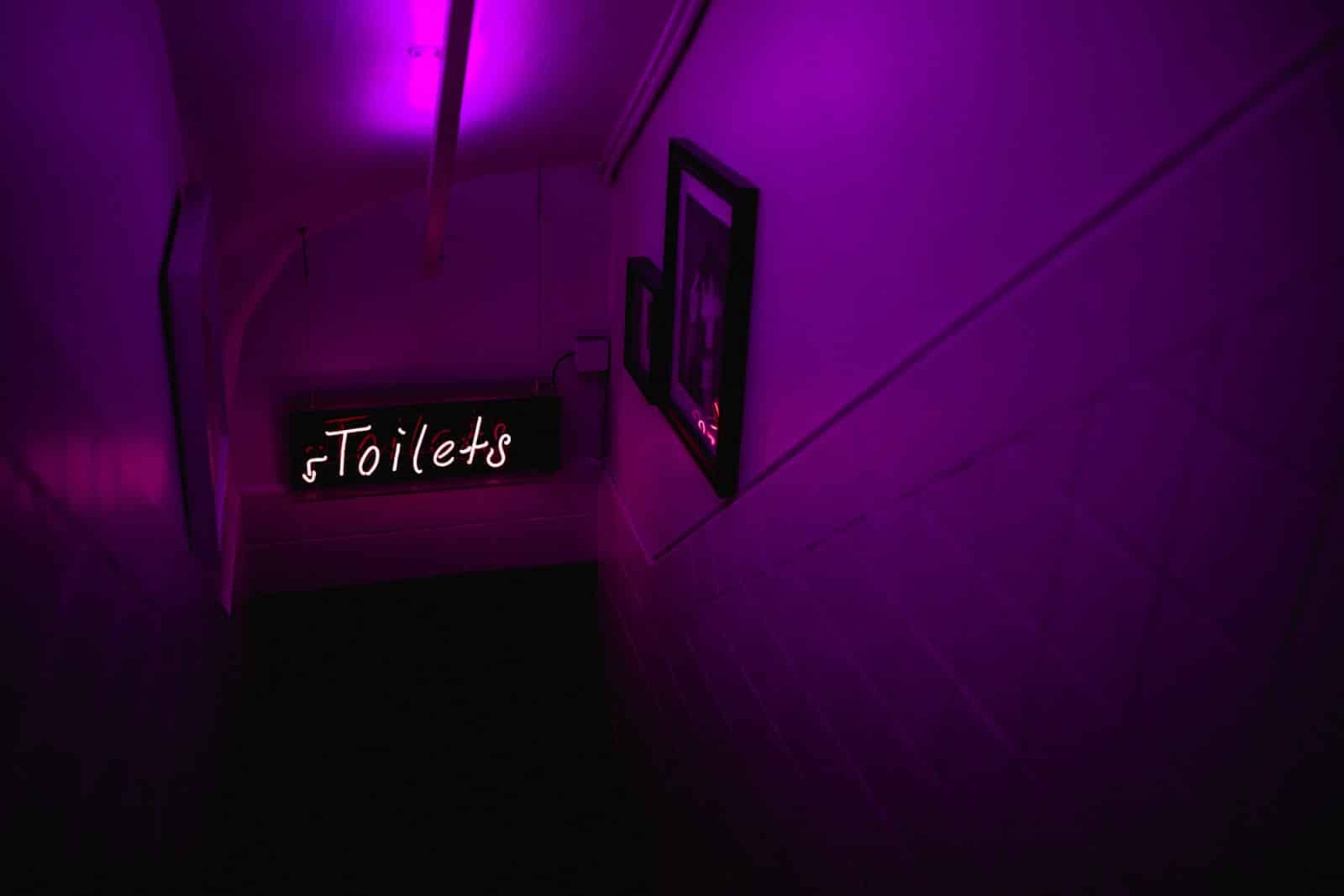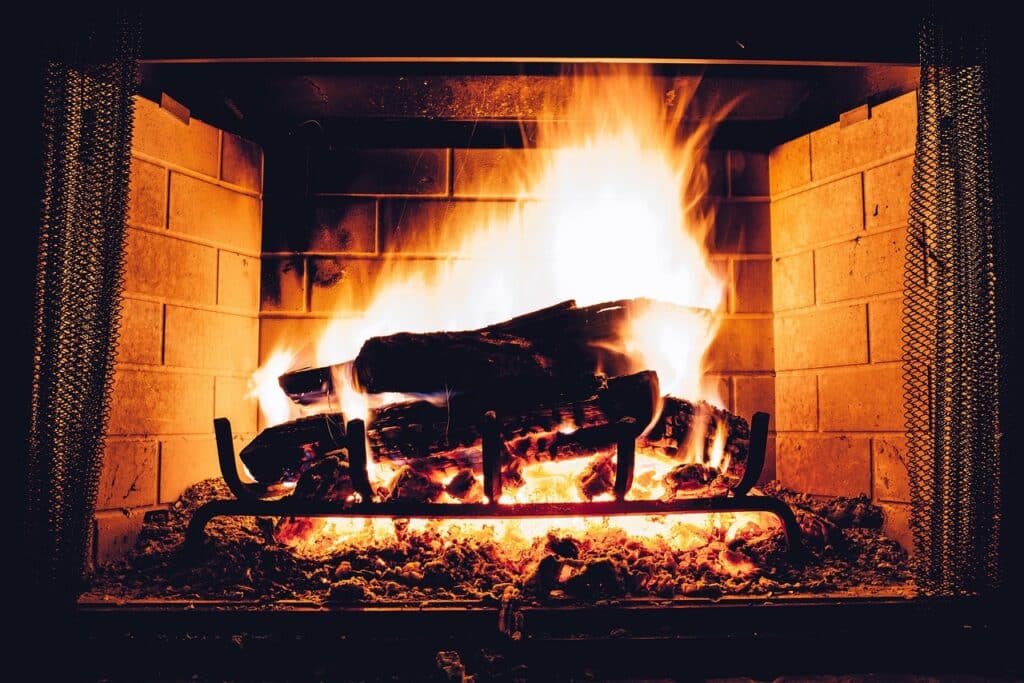Your home’s plumbing system works tirelessly behind the scenes, delivering fresh water to your faucets and safely removing waste from your property. This complex network of pipes, fixtures, and appliances requires regular attention to function properly and avoid costly repairs.
Most homeowners take their plumbing for granted until something goes wrong. A burst pipe, backed-up sewer line, or failed water heater can quickly turn into an expensive emergency that disrupts your daily routine. The good news? Many plumbing problems are preventable with proper maintenance and early intervention.
Understanding how your plumbing system works and implementing a regular maintenance routine can save you thousands of dollars in repairs while extending the life of your pipes and fixtures. Whether you’re dealing with supply lines that deliver water throughout your home or drainage pipes that carry waste away, each component plays a vital role in keeping your household running smoothly.
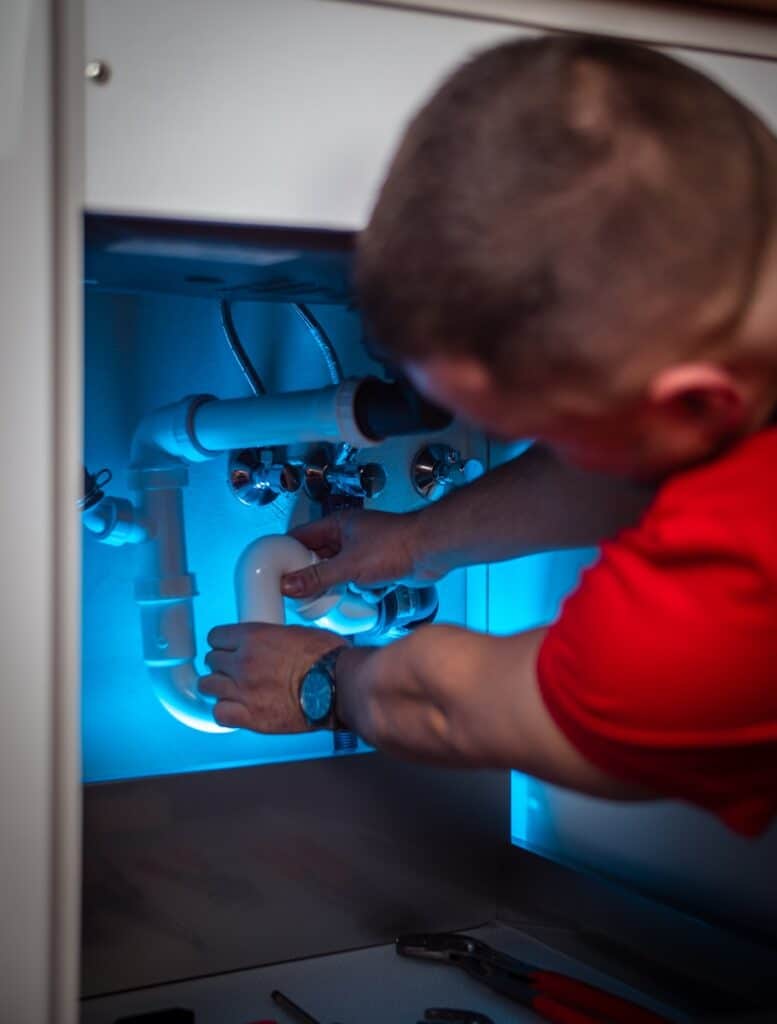
Photo by Timur Shakerzianov on Unsplash
Understanding Your Home’s Plumbing System
Before diving into maintenance tips, it’s helpful to understand the basic components of your plumbing system. Your home’s plumbing consists of three main subsystems that work together to provide water service and waste removal.
Water Supply System
The water supply system brings fresh water into your home through supply lines connected to either a municipal water source or a private well. These supply pipes branch throughout your house, delivering both hot and cold water to fixtures like sinks, toilets, showers, and appliances such as washing machines and dishwashers.
Your water heater plays a crucial role in this system, heating cold water and distributing it through hot water supply lines. The entire water supply operates under pressure, which allows water to flow upward to second-story fixtures and maintain adequate flow rate at all outlets.
Drainage System
The drainage system removes wastewater and sewage from your home through a network of drain pipes that flow by gravity toward your main sewer line or septic system. This system includes everything from kitchen sinks and floor drains to toilet waste lines.
Drainage pipes must maintain a proper slope to ensure waste water flows efficiently toward the sewer line. Without adequate slope, waste can accumulate in pipes and create clogs or backups that lead to significant damage and health hazards.
Venting System (DWV System)
The drain-waste-vent (DWV) system includes vent pipes that allow sewer gas to escape safely outside your home while preventing these gases from entering your living spaces. Vent pipes also regulate air pressure within the drainage system, ensuring proper flow and preventing water from being siphoned out of fixture traps.
The vent stack extends through your roof and connects to various fixtures throughout your home. This venting system is essential for preventing health risks associated with sewer gas exposure and maintaining proper drainage function.
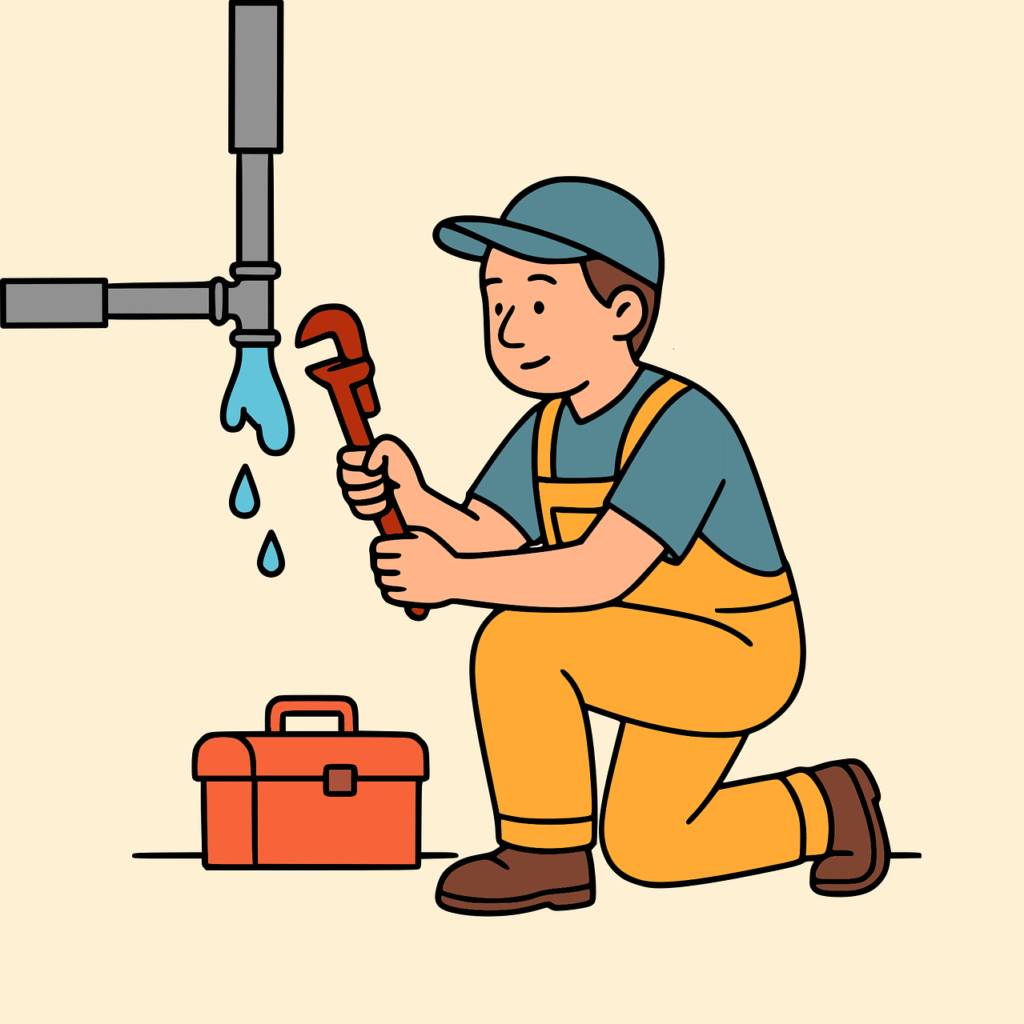
Photo by Mohamed_hassan on Pixabay
Regular Plumbing Maintenance Tasks
Implementing a regular maintenance schedule helps identify potential problems before they become expensive emergencies. These routine tasks can significantly extend the life of your plumbing system.
Monthly Inspections
Check all visible pipes for signs of leaks, corrosion, or damage. Look for water stains on walls, ceilings, or floors that might indicate hidden leaks in supply lines or drainage pipes. Pay special attention to areas where pipes are exposed, such as crawl spaces, basements, and utility rooms.
Examine your water meter periodically to detect leaks. Turn off all water-using appliances and fixtures, then check if the meter continues to register usage. Any movement indicates a leak somewhere in your water distribution system.
Drain Maintenance
Keep drains flowing freely by avoiding common mistakes that lead to clogs. Never pour grease or oil down kitchen sinks, as these substances solidify in pipes and create blockages. Use drain screens to catch hair and debris before they enter your drainage system.
Monthly cleaning with baking soda and hot water can help prevent buildup in drain pipes. Pour a cup of baking soda down the drain, followed by hot water, to break down soap scum and organic matter that accumulates over time.
Water Heater Care
Your water heater requires regular attention to maintain efficiency and prevent premature failure. Drain and flush the tank annually to remove sediment buildup that reduces heating efficiency and can cause damage to the tank.
Check the temperature and pressure relief valve regularly to ensure it’s functioning properly. This safety device prevents dangerous pressure buildup that could cause the tank to rupture. Replace the valve if you notice any signs of leakage or corrosion.
Seasonal Maintenance Strategies
Different seasons present unique challenges for your plumbing system. Adapting your maintenance routine to address seasonal concerns helps prevent weather-related damage and ensures year-round reliability.
Winter Protection
When temperatures drop, exposed pipes in unheated areas become vulnerable to freezing. Frozen pipes can burst and cause thousands of dollars in water damage. Insulate pipes in crawl spaces, attics, and exterior walls using pipe insulation or heat tape.
Know the location of your main shutoff valve and ensure all household members can operate it in an emergency. If pipes freeze, shutting off the water supply quickly can minimize damage from burst pipes.
Disconnect and drain outdoor hoses before the first freeze. Close the shutoff valve to exterior spigots and open the faucets to drain any remaining water from the lines.
Fall Plumbing Maintenance Tips
As the temperatures start to drop, fall is the perfect time to prepare your plumbing system for the colder months ahead. Here are some essential tips to keep your plumbing in top shape during autumn:
- Inspect Outdoor Faucets and Hoses
Disconnect and drain garden hoses to prevent them from freezing. Check outdoor faucets for leaks and ensure they are fully turned off. Consider installing insulated faucet covers for added protection. - Clear Out Gutters and Downspouts
Fallen leaves and debris can clog gutters and downspouts, leading to water overflow that may damage your home’s foundation. Ensure these are cleaned out regularly to maintain proper drainage. - Check for Pipe Insulation
Pipes located in unheated areas such as basements, garages, or crawl spaces are vulnerable to freezing. Wrap them with foam insulation to help retain heat and prevent burst pipes. - Test Your Sump Pump
Heavy fall rainfalls can strain your sump pump. Test it to ensure it’s functioning properly and clear out any debris in the pit. Have a professional inspect it if necessary. - Inspect Water Heater Performance
As you start relying more on hot water during cooler weather, check your water heater for signs of rust, leaks, or inefficiency. It’s also a good time to flush out sediment buildup for better performance.
Following these fall maintenance tips can protect your plumbing system from seasonal challenges, saving you money and stress as winter approaches.
Professional Maintenance and Inspections
While many maintenance tasks can be handled by homeowners, some aspects of plumbing maintenance require professional expertise. Knowing when to call a professional plumber can prevent minor issues from becoming major problems.
When to Call a Professional
Complex plumbing work involving gas lines, sewer line repair, or major pipe replacement should always be handled by licensed professionals. These systems require specialized knowledge and tools to service safely and in compliance with local codes.
If you notice recurring clogs, reduced water pressure throughout your home, or unusual noises from your plumbing system, these symptoms often indicate problems that require professional diagnosis and repair.
Water quality issues, such as discolored water, unusual odors, or metallic tastes, may indicate problems with your water supply lines or water heater that need professional attention.
Professional Services Worth Investing In
Annual professional inspections can identify developing problems before they cause significant damage. A qualified plumber can assess the condition of your entire plumbing system, including areas that aren’t easily accessible to homeowners.
Video camera inspections of sewer lines and main drainage pipes can reveal blockages, root intrusion, or pipe deterioration that aren’t visible from the surface. This technology helps pinpoint problems without excavation, saving time and money on repairs.
Professional drain cleaning services use specialized equipment to remove stubborn clogs and buildup that household remedies can’t address. High-pressure water jetting can clear even the most challenging blockages while cleaning pipe walls.
Material Considerations and Upgrades
Understanding the different materials used in plumbing systems helps you make informed decisions about maintenance and replacement needs.
Pipe Materials
Copper pipes offer excellent corrosion resistance and longevity but require proper installation and maintenance to prevent joint failures. Copper supply lines typically last 50-70 years with proper care.
Polyvinyl chloride (PVC) pipes are commonly used for drainage systems and some cold water supply lines. These pipes resist corrosion but can become brittle over time, especially when exposed to extreme temperature changes.
Cross-linked polyethylene (PEX) piping has become popular for water supply systems due to its flexibility and resistance to freezing damage. PEX systems are easier to install and maintain than traditional rigid piping.
Cast iron pipes, common in older homes, eventually corrode and require replacement. If your home has cast iron drainage pipes, monitor them closely for signs of deterioration and plan for eventual replacement.
Upgrade Considerations
Replacing old galvanized steel pipes with modern materials improves water pressure, reduces the risk of leaks, and eliminates the metallic taste associated with corroded pipes. This upgrade often pays for itself through reduced water waste and fewer repair costs.
Installing water filtration systems or water softeners can extend the life of your plumbing fixtures and appliances while improving water quality. These systems reduce mineral buildup and corrosion in pipes and water-using appliances.
Smart water monitoring systems can detect leaks early and automatically shut off your water supply to prevent damage. These systems connect to your smartphone and provide real-time information about your water usage patterns.
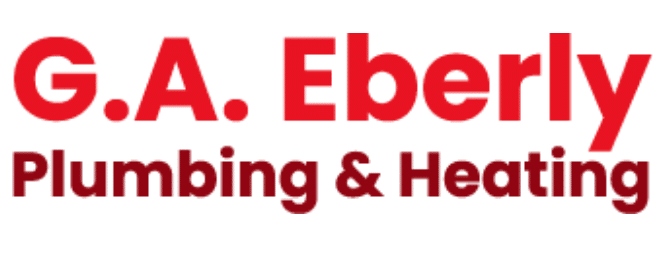
Protecting Your Investment By Calling G.A. Eberly Plumbing & Heating
Your plumbing system represents a significant investment in your home’s infrastructure. Proper maintenance protects this investment while ensuring reliable service for years to come.
Regular maintenance prevents small problems from escalating into costly repairs that can damage your home’s structure and disrupt your daily routine. A burst water pipe or sewer backup can cost thousands of dollars to repair and may not be fully covered by homeowner’s insurance.
Maintaining detailed records of your plumbing maintenance activities, repairs, and upgrades helps identify patterns and plan for future needs. This documentation also adds value when selling your home, demonstrating that you’ve properly maintained the plumbing system.
Professional plumbing services provide expertise and warranties that protect your investment. Working with licensed, insured contractors ensures that work meets local codes and safety standards while providing recourse if problems develop.
G.A. Eberly Plumbing & Heating is the best choice for all of your plumbing requirements when it comes to plumbing contractors in Clinton. Their knowledgeable staff has decades of experience in the field and handles everything with professionalism and accuracy, from simple fixes to intricate installations. Their customer-first philosophy guarantees prompt service, affordable prices, and unmatched attention to detail.
Frequently Asked Questions
How often should I have my plumbing system professionally inspected?
Most experts recommend annual professional inspections for homes over 10 years old, or every two years for newer homes. Homes with older plumbing systems or previous problems may benefit from more frequent inspections.
What are the warning signs of serious plumbing problems?
Watch for decreased water pressure, frequent clogs, unusual noises from pipes, water discoloration, musty odors, or unexplained increases in water bills. These symptoms often indicate problems that require professional attention.
Can I prevent all plumbing emergencies with proper maintenance?
While proper maintenance significantly reduces the risk of plumbing emergencies, some problems result from normal wear and aging that can’t be completely prevented. However, regular maintenance often allows you to address issues during convenient times rather than emergency situations.
How can I reduce my water usage without sacrificing comfort?
Install low-flow fixtures, fix leaks promptly, and upgrade to efficient appliances. Simple changes like shorter showers and running dishwashers and washing machines only when full can significantly reduce water consumption.
Take Action to Protect Your Home
Your plumbing system deserves the same attention you give other major home systems. Implementing a regular maintenance routine, addressing problems promptly, and working with qualified professionals when needed ensures reliable service and protects your investment.
Start by conducting a thorough inspection of your visible plumbing components and creating a maintenance schedule that fits your lifestyle. Keep records of your maintenance activities and don’t hesitate to consult with professionals when you encounter problems beyond your expertise.
Remember that preventive maintenance costs far less than emergency repairs and helps avoid the inconvenience and potential damage associated with plumbing failures. Your home’s plumbing system will reward proper care with years of reliable service.
Helpful Resources and Relevant Links
- Environmental Protection Agency (EPA) WaterSense Program: Learn about water-efficient products and practices to reduce water use and save on utility bills.
- [American Society of Plumbing Engineers (ASPE)](https://www.aspe.org/): Access technical resources, training, and guidelines for residential and commercial plumbing systems.
- Homeowner’s Guide to Preventing Sewer Backups: A comprehensive guide from Dodge Insurance providing tips to prevent sewer backups and protect your home.
- Maryland Department of the Environment (MDE) – Water Management: Explore water quality programs and find valuable information on maintaining a safe and healthy plumbing system.
- Energy Star – Water Heater Savings: Discover energy-saving insights and guidance for selecting efficient water heaters for your home or business.

